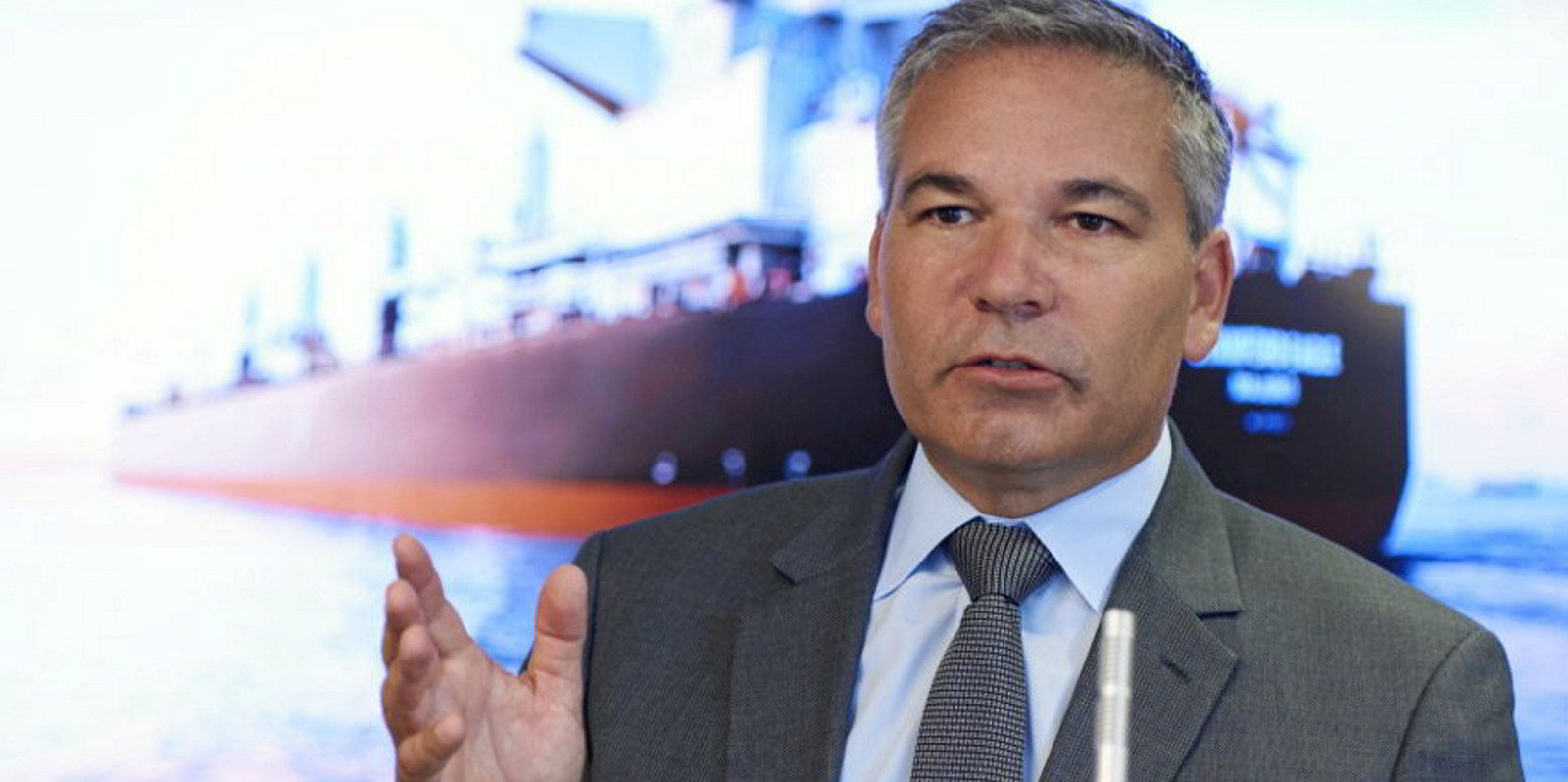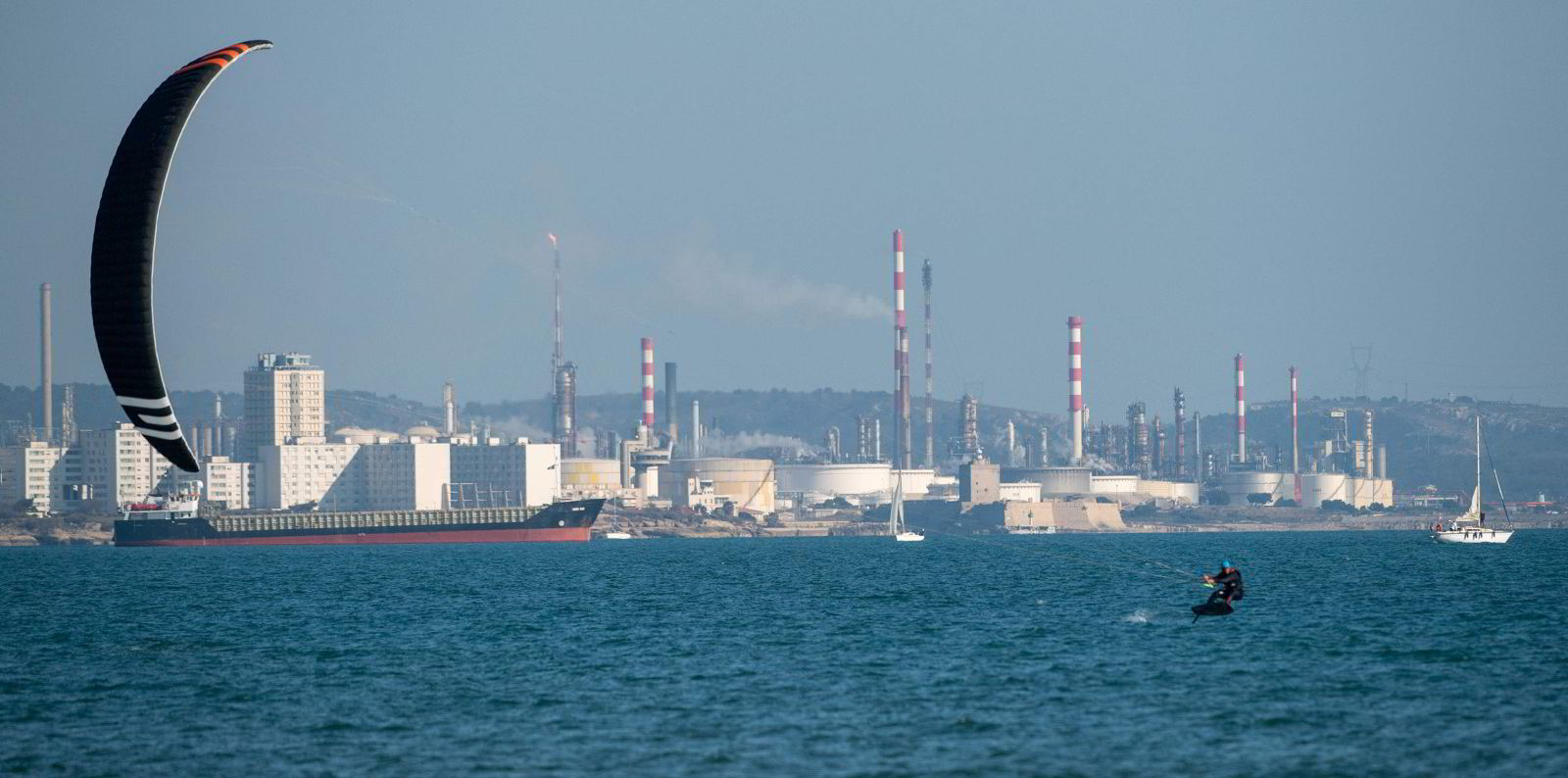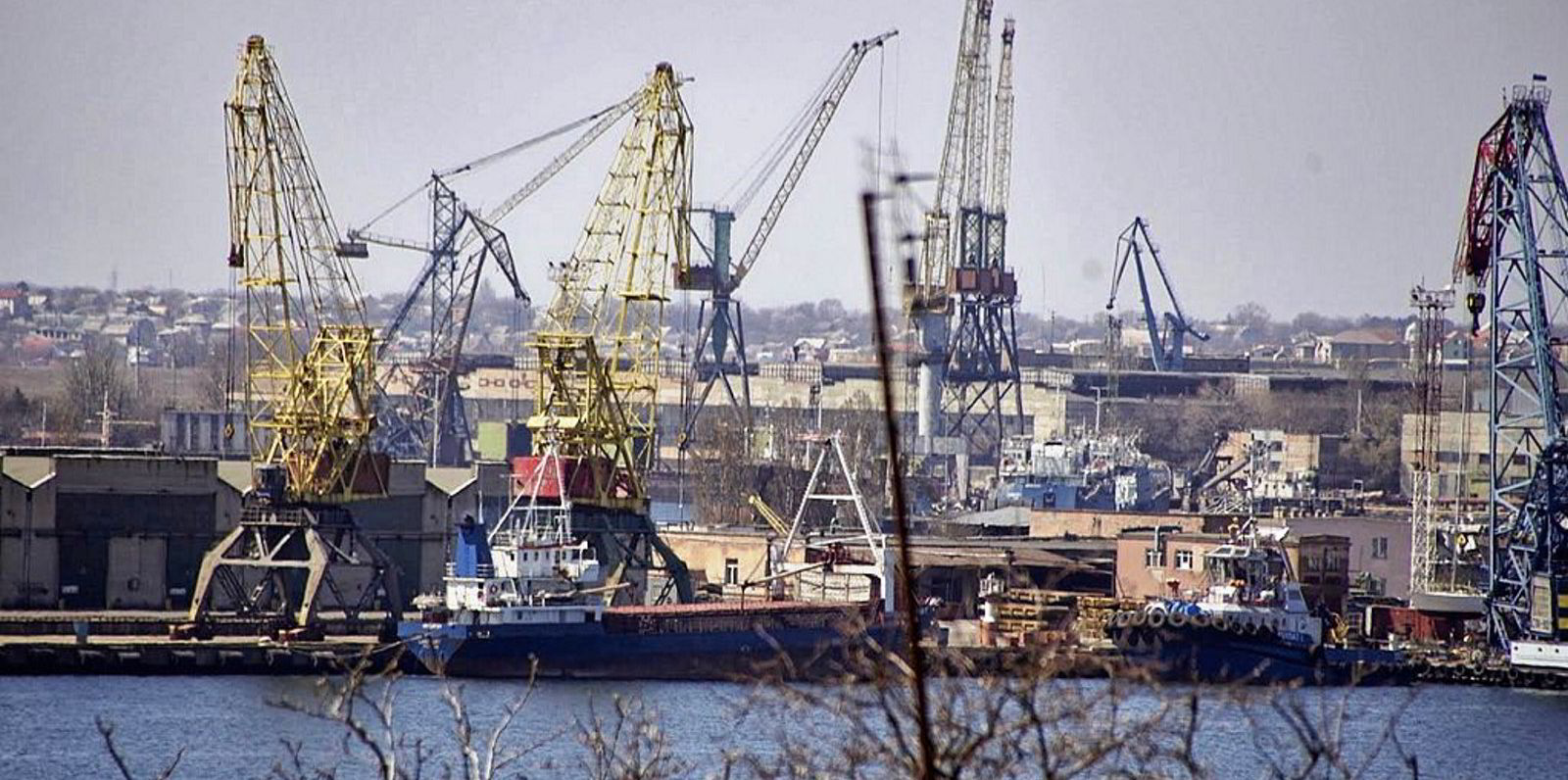Shipowners constantly do business with partners from other countries, given that the sector is completely dependent on international trade.
But some are seriously looking at ceasing business relations with Russia after its military invaded neighbouring Ukraine last week in an ongoing attempt to take over the country.
“The real question you have to ask yourself is, do you want to be doing business with Russia overall, whether it’s coal or grain,” Eagle Bulk Shipping chief executive Gary Vogel said on Thursday as a member of the online TradeWinds Shipping Forum’s ESG panel.
“I think that’s going to be one of the challenges, particularly for US-based and European Union-based companies for the foreseeable future.”
He said crew safety is Eagle Bulk’s top priority amid the aggression against Ukraine.
“The concern of these seafarers is paramount,” he said.
“They’re walking around with their phones trying to communicate with their families, sometimes successfully, sometimes not.
“And you know, we went from one crew crisis to another, and it has an impact on their ability to do their jobs well, understandably.
“And that has a potential impact to safety and what have you. So now I don’t think you can overstate how serious this is.”
Vogel posed this question as Russia faces a barrage of sanctions that include removing some of its financial institutions from the SWIFT financial system.
International Seaways, which owns 83 tankers, is not conducting any “fresh Russian business” and has not signed any new fixtures to Russian ports, chief executive Lois Zabrocky said.
“At the same time, I will say that the EU and the United States are not going to support shutting off fossil fuels coming out of Russia because it would be very difficult for many,” she said.
“We also have to try to balance the safety of our fleet, legality of what we’re doing, and then you have this moral overlay.
“What we want is for all the violence to stop, for everyone to deescalate, not continuously escalate.”
She said her company has a very small number of Ukrainian seafarers that it is trying to support in any way it can.
“Obviously, it’s extremely difficult for them to be far away from their families at this time when their families are often in physical danger,” she said.
Genco Shipping & Trading’s top focus is returning the bulker owner’s Ukrainian seafarers safely to their homes, if they so choose, while watching Russia’s impact on global trade, said chief executive John Wobensmith.

“I think things are still very fluid and evolving,” he said.
“We have definitely already seen the coal trade start to shift, seeing more from Australia and South Africa going into Europe. In my personal view, Russian coal is going to be very difficult for anybody.”
Star Bulk Carriers, which has almost 130 bulkers, is also closely monitoring the Russia-Ukraine conflict and its impact on trade, chief strategy officer Charis Plakantonaki said.
“For the short term, we see a mixed picture with both positives and negatives,” she said.
“The negatives are that cargoes are being cancelled, but on the positives for the market, we expect to see an increase in the distribution of trade, which could mitigate negative events.
“Of course our priority has been and remains on the safety and security of our crews on board and we are taking all necessary measures towards that front.”
The shipowners also discussed what they are doing to meet environmental, social and governance (ESG) goals, the panel’s main focus.
Carnival Corp, the world’s largest cruise ship owner, has ordered 11 LNG-fuelled ships, six of which are already in service, chief maritime officer William Burke said.
“By the time those additional five are there to make 11, LNG will represent about 20% of our capacity,” he said.
“LNG is the best thing out there today, you know, 20% less carbon than traditional fuels.”
Zabrocky said International Seaways is also investing in LNG-fuelled ships, having ordered three VLCCs from Daewoo Shipbuilding in a partnership with Shell Oil.
“LNG is 20% more efficient than a brand new conventional engine, but if you just compare it to a 10-year-old VLCC, that moves up to 40% inefficiency because of the incremental changes that have been made.”







